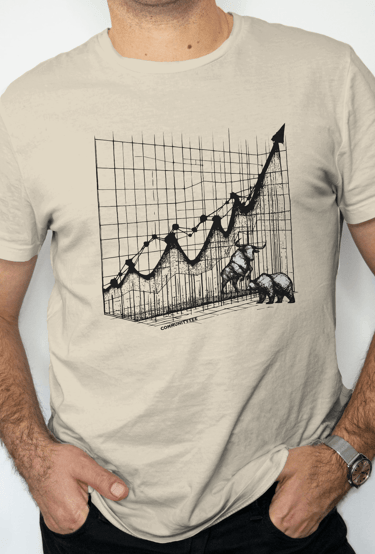The Psychology of Money
reading recommendation
FINANCE
After previously tackling everyday topics such as beer and Tiger Balm, I want to write about a subject that I believe is of great significance and one that everyone should ponder: Why do we handle money the way we do? I summarize the key points from Morgan Housel's book "The Psychology of Money" and occasionally offer my own opinion. The book aims to examine our relationship with money from a psychological perspective. My goal is not to show you the next investment strategy or the path to wealth but to foster an understanding of why we deal with money as we do.
Theoretically, we all know what's good for us, yet often it remains just theory. An apt proverb in this context is "My body, my castle." We're aware of what's theoretically good for us, but our actions often diverge. This applies to our finances as well, where we frequently let emotions such as arrogance, impatience, fear, envy, and greed guide us. Housel provides many examples and emphasizes that irrational emotions, our cultural background, and our experiences play significant roles.
For example, the cultural drive can be seen in the "American Dream" in the U.S. and the safety-conscious German tradition. It's not merely a stereotype that Americans, from a German perspective, "cannot" handle money, but it is statistically proven that the average American spends more money. This often results in the use of consumer credit or multiple credit cards to spend money that one does not yet have. Conversely, Americans often do not understand why Germans do not feel compelled to make more out of what they have or will have. In Germany, it's customary to first provide for the rest of one's life before taking risks, and any kind of investment is equated with risk. In light of inflation and low interest rates on savings accounts, this seems incomprehensible to me.
Regarding emotions and irrational behavior, playing the lottery is a prime example. Statistically, a loss is almost guaranteed, yet what drives us to participate? Housel provides intriguing statistics: In the U.S., households with lower incomes spend an average of $411 annually on lottery tickets, while 40 percent of households do not have $400 in financial reserves for unexpected expenses. In my opinion, Housel does not consider that these households cannot afford expensive hobbies or travel and that by purchasing a lottery ticket, they experience an affordable adrenaline rush and dream of a jackpot and a better life, even though they are aware that the likelihood of a big win is almost non-existent.
Housel also highlights generational differences concerning experiences and life stories. While older generations like Warren Buffett shy away from new forms of investment like Bitcoin, younger generations recognize the similarities between Bitcoin and gold and are more willing to invest in such digital assets. People who grew up during times of high inflation tend to invest less in bonds later on, whereas those who experienced low inflation are more inclined to invest in bonds later. This behavior is independent of the current and actual economic and inflation conditions and can be translated to the stock market: Those who experienced a booming stock market in their youth are more likely to invest in stocks later, and vice versa.
Cultural influences, emotions, and experiences form the basis of habits, preferences, and fears that are difficult to change. The realization that these factors determine our handling of money can help us to reconsider our financial decisions and actively correct our misconduct.
On the subject of wealth accumulation, Morgan Housel identifies "luck" as a significant and uncontrollable factor, alongside the factors already mentioned. He refers to studies investigating the correlation between the income of siblings to demonstrate that, in addition to education and background, chance can play a crucial role. It's not surprising that siblings from affluent families usually remain similarly affluent. It's often observed that this wealth is attributed to personal achievements, while the influence of luck is rarely mentioned.
Morgan Housel also cites the example of an art collector who, over many years, accumulated artworks and only after a long time discovered that among his collection were pieces by a painter whose value had since skyrocketed into the millions. Whether this is luck or skill remains a question.
It is undeniable that expertise and a sober, emotionless approach to investment decisions are also important. I will not delve into this further to avoid making the discussion too dry.
In summary, our relationship with money is influenced by our emotions, culture or traditions, and our experiences. Our investment decisions are heavily dependent on the economic phase in which we grew up and the way our environment influences us. To invest successfully, both luck and a certain level of expertise are necessary. I recommend being open to new ideas, practicing effective risk management, and never spending money you don't have. And of course, this is not investment advice :-)
I hope you enjoyed this blog and that it has sparked your interest in the psychology of money. If you want to delve deeper into the subject and support my work at the same time, please click on this affiliate link and order Morgan Housel's book "The Psychology of Money."
Thank you very much for your support!
source: "The Psychology of Money: Timeless lessons on wealth, greed, and happiness"; ISBN: 978-0857197689; published by Harriman House





